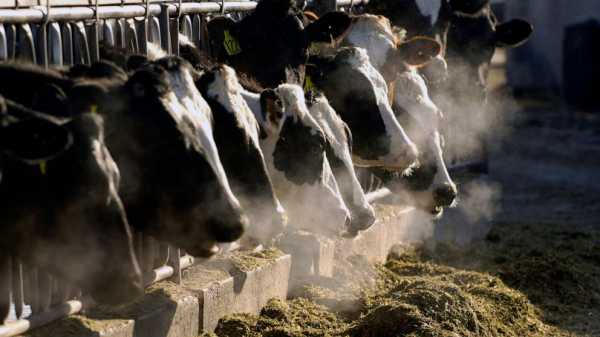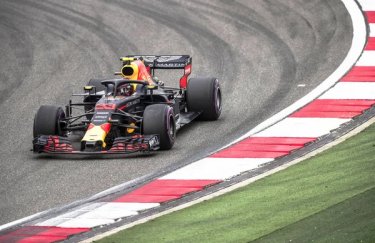
Anti-vaccine advocates have for years used foreboding imagery of syringes to paint immunizations as dark and dangerous. But recent vaccine conspiracy theories are casting an air of fear around more mundane things — like cows and lettuce.
In widespread posts online in recent weeks, misinformation purveyors have spread an erroneous narrative that COVID-19 mRNA vaccines are being quietly added to the food supply, threatening staunch vaccine holdouts.
In some cases, users misrepresented the limited use of RNA-based vaccines in animals. In others, they distorted a company’s research into using plants to grow proteins used in vaccines.
But experts confirm there are no COVID-19 vaccines in your steak or salad. Here are the facts.
CLAIM: COVID-19 mRNA vaccines are being added to the food supply through livestock and produce.
THE FACTS: COVID-19 vaccines are not being passed along through livestock or produce, and experts say that would not be an efficient way to immunize someone. A flurry of social media posts are falsely suggesting otherwise.
“The Unvaccinated Won’t Be Unvaccinated for Long With mRNA in the Food Supply,” reads one tweet shared thousands of times. Another asks: “Did you know they will be giving all of our livestock the covid vaccine this year?”
A TikTok video shared on Instagram, meanwhile, questions whether Whole Foods customers are unknowingly being vaccinated with “the C19 mRNA shot via food products” and shows pictures of arugula and lettuce packages.
In reality, there are no COVID-19 mRNA vaccines licensed for animals, Marissa Perry, a spokeswoman for the U.S. Department of Agriculture, told The Associated Press. She noted that the department's Animal and Plant Health Inspection Service “has not approved and does not have any vaccines under trial to vaccinate livestock for COVID-19.”
Some animals, particularly those in zoos considered susceptible, have received vaccines against COVID-19. But those immunizations do not rely on mRNA technology, said Suresh Kuchipudi, a veterinary scientist and chair of emerging infectious diseases at Penn State University.
In terms of vaccines more generally, there are some RNA-based vaccines licensed for animals. For example, the pharmaceutical company Merck offers a customizable vaccine against the flu and other viruses in pigs to protect a specific herd as needed. That approach predates the advent of humans’ COVID-19 mRNA vaccines and the technology is not the same.
There are no mRNA vaccines for any disease being used in cattle in the U.S., the National Cattlemen’s Beef Association emphasized in a recent statement addressing online misinformation. Farmers and ranchers ultimately choose which vaccines, if any, to give their animals.
Regardless, the notion that an mRNA vaccine could be transmitted to humans through eating meat is not rooted in science.
“No, it could not be transferred,” Ted Ross, a professor of infectious diseases at the University of Georgia and director of the Center for Vaccines and Immunology, said in an email. He said mRNA vaccines have a very short duration in living organisms and degrades.
In addition to the mRNA breaking down quickly, it's unlikely it would survive the cooking process to hypothetically be passed along to consumers, experts said.
Additionally, regulators require something called a “withdrawal time,” a minimum amount of time that must pass between a food animal getting a vaccine and entering the food chain, Alan Young, a professor of veterinary and biomedical science at South Dakota State University, recently told the AP.
There is also no evidence to support the notion that COVID-19 vaccines are being added to produce.
The TikTok video about Whole Foods homed in on a clip of a co-founder of New Jersey-based AeroFarms, an indoor vertical farming company that grows leafy greens.
But the video misrepresented the work described by AeroFarms co-founder David Rosenberg. Rosenberg was discussing early research into growing proteins that could theoretically be used for vaccines, not making edible vaccines that would be on a store shelf.
“Couldn’t be further from the truth,” Marc Oshima, AeroFarms co-founder and chief marketing officer, said of the claim that the company’s vegetables contain a COVID-19 vaccine.
The research initiative Rosenberg discussed, which is no longer active, was part of a research and development arm of the company and separate from its commercial products, Oshima said. The farms for research and commercial products are separate spaces.
While some researchers have explored the possibility of growing edible vaccines — an appealing idea for use in countries where vaccine storage can be an issue — that concept is “far, far away from being proven,” said Shawn Chen, a professor at Arizona State University’s Biodesign Center for Immunotherapy, Vaccines and Virotherapy.
Chen said scientists have used plants to grow vaccines that can be extracted and used for injections. But producing edible vaccines is tricky in terms of getting the right dosage and delivering the medicine through the gut. That approach, he said, would require much more work, including trials and approvals, before it could even theoretically enter the market.
___
This is part of AP’s effort to address widely shared misinformation, including work with outside companies and organizations to add factual context to misleading content that is circulating online. Learn more about fact-checking at AP.
Sourse: abcnews.go.com






